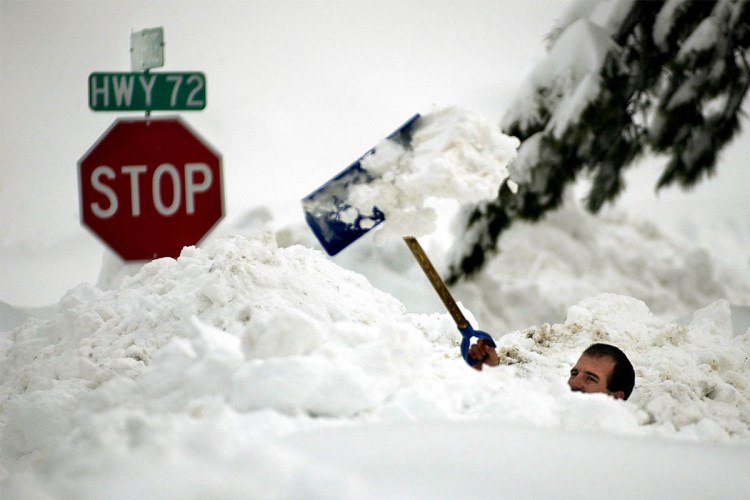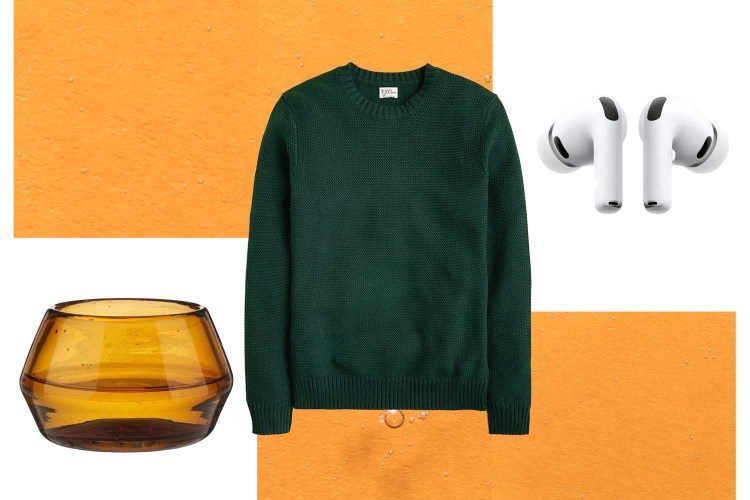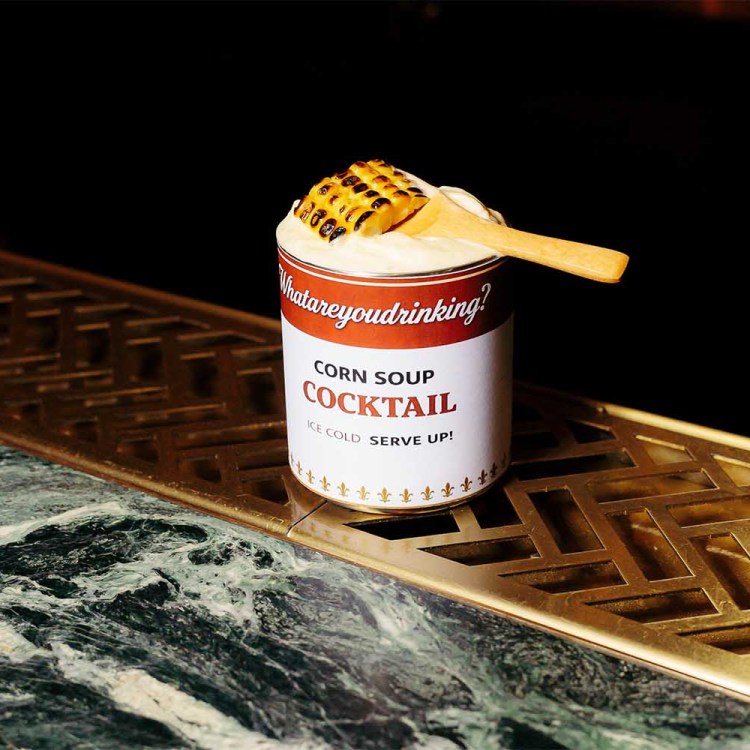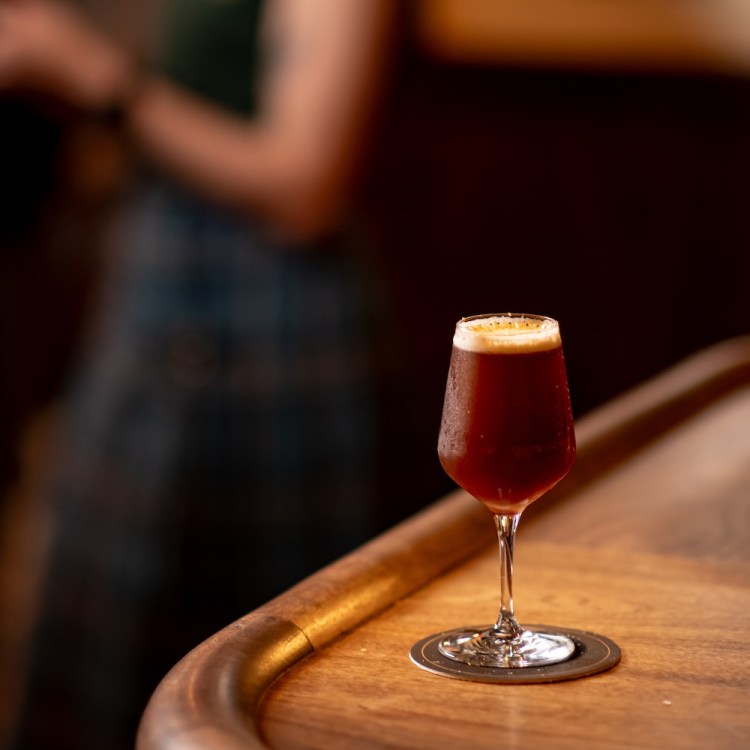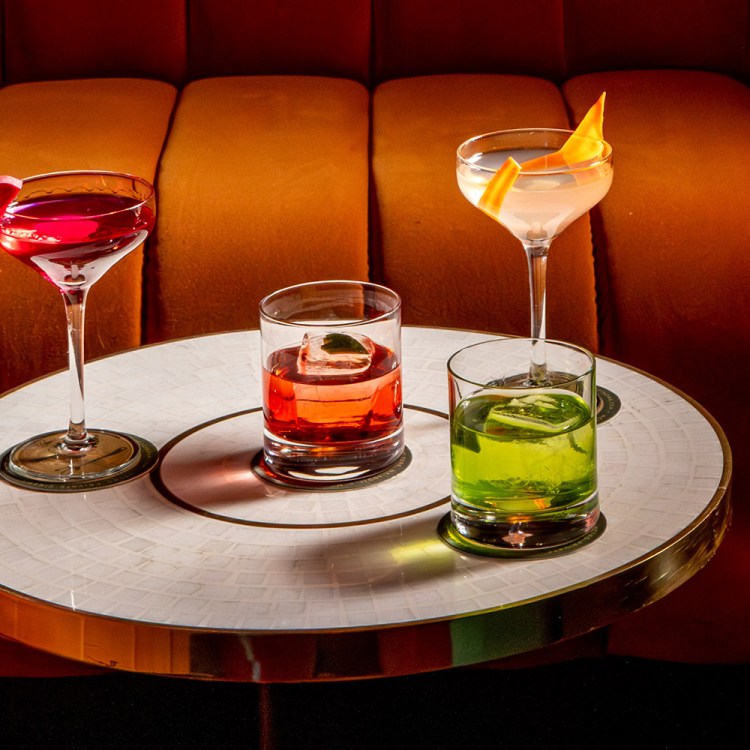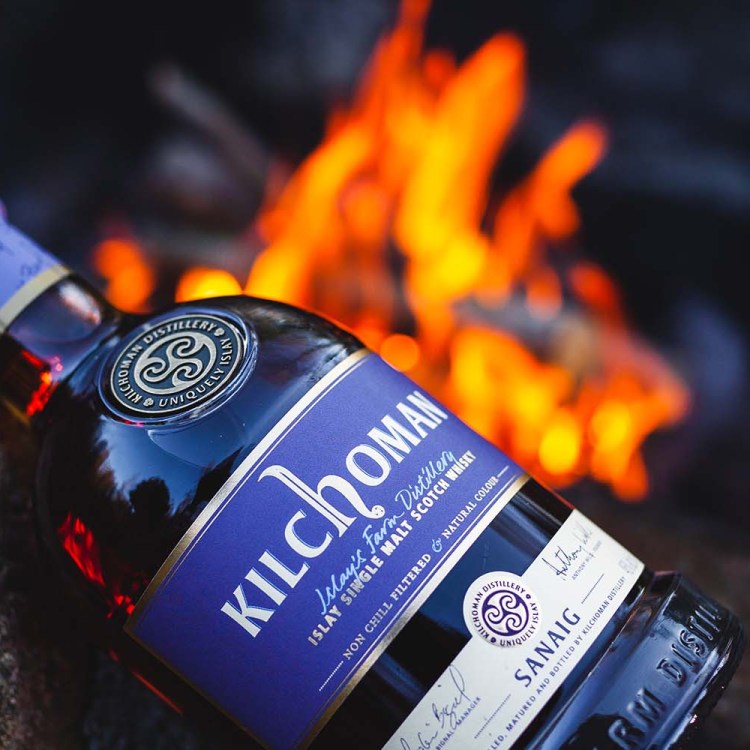Whisky makers are a curious lot. It takes a special kind of person to wait years and even decades to find out if their work is any good — if, in fact, their long-term focus will translate to plaudits and recommendations from the whisky-drinking public.
One-part bon vivant, one-part mad scientist, Dr. Bill Lumsden is a passionate creator of single-malt Scotch and an enthusiastic whisky drinker. His business card says he’s the Director of Distilling, Whisky Creation & Whisky Stocks for Glenmorangie and Ardbeg, where he’s been making stelar malt whiskies since 1998. A three-time winner of “Distiller of the Year” at the International Spirits Challenge, Lumsden is a perpetual fount of innovation that flows like the waters of the Tarlogie Springs — the source that feeds not only the Glenmorangie distillery but also Lumsden and his team’s new innovation lab, which is slated to open early in 2020.
InsideHook caught up with him during Signet Week at the distillery, when men and now women of Tain crank out the special chocolate malt spirit that will be used to make one of the brand and Lumsden’s most lauded expressions: Glenmorangie Signet.
Do you remember your first sip of whisky?
Absolutely! I was 16 years old at the time and it was blended scotch called Stuart’s Cream of the Barley, and it was pinched from my friend David’s parents drinks cupboard. It ended in tears and actual bloodshed, because we were completely hammered. We drank a bottle of Sherry and then we drank some of this whisky. I have to say I didn’t much care for it at the time, but I ended up getting blood all over the case of David’s big brother’s, Gibson Les Paul guitar. So he beat the shit out of us.
But my first proper, serious, appreciative taste of whisky was a few years later, in 1984 and it was a glass of Glenmorangie 10-year-old. And I thought, ‘yeah, all right!’ The reality was it was highly likely to be either Glenmorangie, Glenfiddich, Glenlivet or Macallan. But it happened to be Glenmorangie and I thought, this is a lot different from what I remember. I enjoyed the subtlety and the complexity of it. But a lot of people don’t believe me when I say it was Glenmorangie.
Beyond those first sips, can you tell us about your early experience with whisky?
After that I became so entranced by it. My father passed away last year, but he was a big whisky drinker, and he always said that I would come to appreciate and enjoy whisky. He was absolutely right. I was really intrigued by the huge variety of whisky. The variety, then, in the ’80s, is nothing like it is now. But even so, all the different distilleries, I thought, wow, I’m a Scotsman born and bred. I’ve lived here all my life and I’ve just been ignoring all of this heritage and tradition on my doorstep. So, I ended up just experimenting. I was a student and didn’t have a lot of money and I would go to a lovely bar in Edinburgh, which I still go to, to this day, and it’s not changed that much, called the Jolly Judge. It’s a really cool wee place and they had a decent selection of malt whisky. So once a week, or once a fortnight I would go in there and treat myself to a new dram of whisky and I worked my way through the shelf there. At the same time, I was studying my PHD and it just all crystallized in my mind. I’m going to work in the Scotch whisky industry.
Can you trace that back to a specific whisky that inspired you to spend your life making whisky?
I would have to say, it was Glenmorangie because it was the first one I’d tasted. If I’d started off with something a little bit more intense, like a Lagavulin or an Ardbeg or something, I might not necessarily have fallen in love with it as much as I did. So it started off with Glenmorangie, but then, like I say, it was just the sheer variety. I was also deeply intrigued by the fact that some of the distilleries were quite obscure. They were names which people found difficult to pronounce and all of that appealed to me. I just found that within that category there was such a stunning range of different tastes and different characteristics. As someone who gets bored very easily, that deeply appealed to me. So it was like a perfect storm of things coming together. The geekiness, the heritage, the huge wide variety. And if I’m honest, I also liked the fact that it’s not everyone’s cup of tea.
Well, now that whisky and malt whisky are very popular, and since you want to run against the grain, what are you into now?
In terms of running against the grain, I mean I partly do that through my work by introducing obscure expressions. Some of the projects I’ve been working on are real fun projects. They might not necessarily end up giving me the most delicious whisky I’ve ever made, but that’s not the point. It’s just something different. I suppose my drinking repertoire, as I’ve gotten older, has become much narrower, and basically now, I drink whisky, I drink wine and occasionally drink beer, and I almost don’t drink anything else. Which is probably a bit boring of me. I should be more open minded to trying other things, but I know what I like.
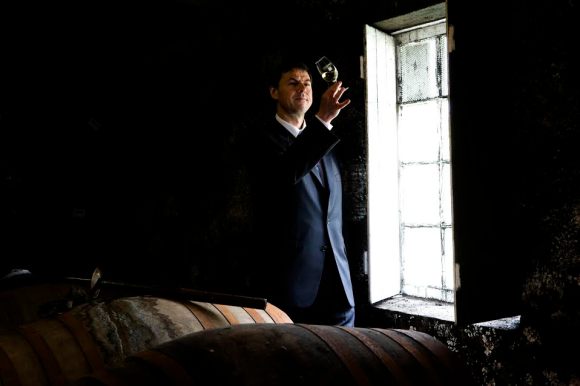
What are the most important things you’ve learned along the way?
First of all, you need to be quite single-minded about what you want to do. There will always be naysayers and people trying to put barriers in your way and trying to hijack your ideas. So, you have to be quite strong. I’ve got a vision of what I want to do, and I’m very determined to see it through.
The second thing I’ve learned is that work vaguely within the rules, but don’t let the rules restrict you or stop your doing something. If you can do it, find a way to work round about the rules, again to help you achieve your goal. And I think that the other thing I’ve learned, which I hope has stood me in good stead, is that at the end of the day, I’m just like everyone else out there. I’m just a whisky drinker. So not to get ahead of myself, maintain a degree of humility. I like meeting other customers and consumers and really getting their opinion on things. Even if they don’t particularly like some of the things I’ve done, you always learn from that.
What are your current inspirations?
What’s inspiring me a lot just know is, the whole new wave of new distilleries. I hate the use of the C word, because in reality, all it means is they’re small. What we do, what Macallan do, what Glenfiddich do, is craft. We take great care of our product, we’ve been doing it for many years, we know what we’re doing. So the fact that these new kids on the block are arguably stealing a little bit of the limelight, that’s inspiring me to try even harder, and innovate a bit more. I’m reading some of them saying, “Oh, we’re going to own innovation.” They even put a list of what they’re going to do. And I read through it and I think, “Boring.” Did that 20 years ago, did this, did that. The fact that a lot of them are by, through necessity, bottling of whiskys at three years old, and frankly they’re not much good, in my opinion. I’ve tasted quite a few of them at whisky fairs and things, and for the price they’re charging, they are not a good advert for our industry, in my opinion. I guess that’s spurring me on to try and make my whiskys even better. We’ve got a bit of a challenge there that it’s exciting for people to see these new brands, but why spend a hundred pounds on a bottle of three year old, which is frankly going to be a bit rough, when you can spend 35 pounds on a really decent bottle of 10-year-old or 12-year-old. So, I’m watching this very carefully, and I do wonder how many of these distilleries will still be here in years to come.
How have those American whiskeys influenced the way you make whisky?
I thought I was pretty high up there in terms of knowledge about wood. But in the great scheme of things, some of the stuff that the guys at Sazerac or Buffalo Trace have done, has taken it way on to the next level. So it’s made me take a step back and think, maybe I need to consider this or consider that.
Where do you personally want to take whisky now?
Where I would like to take whisky is actually where I think it already is, but people just don’t know it. In terms of the amount of work, the amount of love, the amount of passion, the amount of knowledge that goes into making this product, to me it’s just head and shoulders above anything else that’s made throughout the world. And by that I even include top quality wine, which to me is a much simpler production process.
So I would like to try and just spread the gospel. And I know that very few people are going to drink whisky all day, everyday, but when you’re in the mood for it, to me, it just hits that spot like nothing else. So I guess what I’m saying is, I’d like to slightly democratize whisky and make sure that any serious drinker, anyone who seriously appreciates good things in life, must have whisky as part of their repertoire.
And what do you want the people who drink it to come away with?
I would like them to be interested enough to learn a bit about how it’s made. But at the end of the day, if they don’t do that, I would just like them to sit and think, wow, this is something really special.
If you could only have one glass more, what would you pick?
I think it would have to be my 1981 Glenmorangie distillery manager’s choice, which was one single, first fill ex-bourbon hogshead, that I discovered in the warehouse when I was distillery manager. It was just such a sublime example of Glenmorangie, so I bottled that cask by hand. We got a weights and measures approved flask, put the labels on ourselves and it was just such a wonderful project. I’ve actually still got two bottles of it left in my cellar, so that would probably be the last one I would ever drink.
Every Thursday, our resident experts see to it that you’re up to date on the latest from the world of drinks. Trend reports, bottle reviews, cocktail recipes and more. Sign up for THE SPILL now.
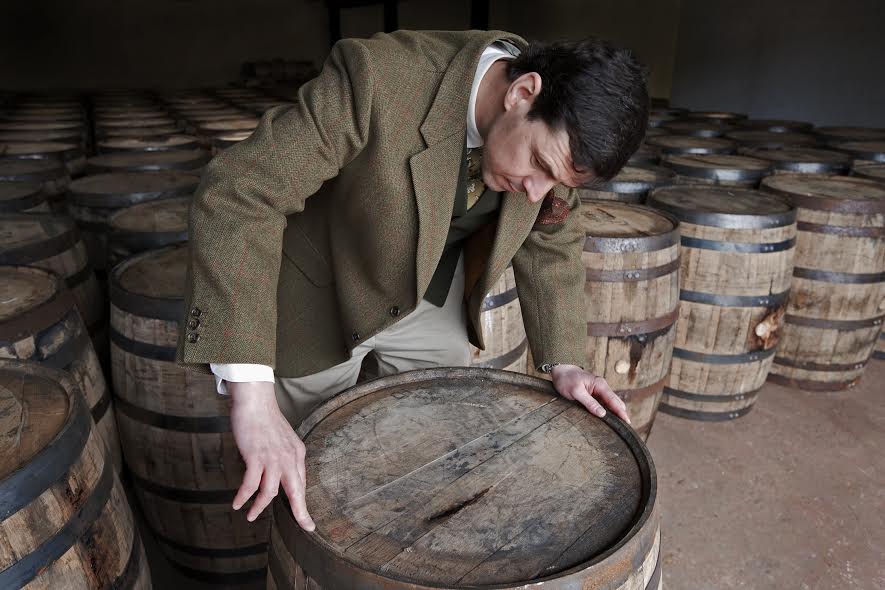

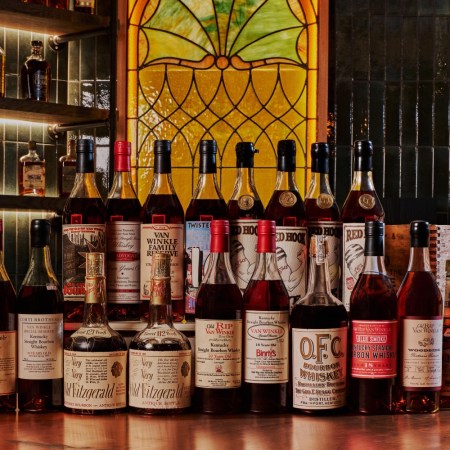
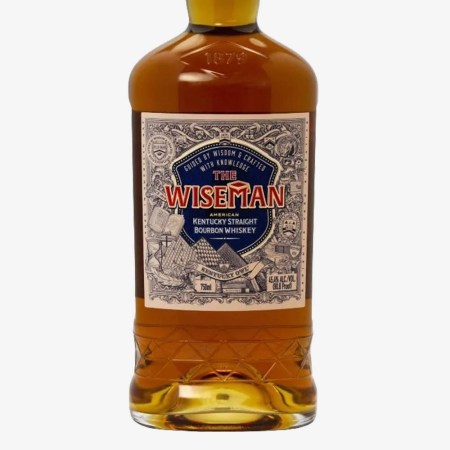
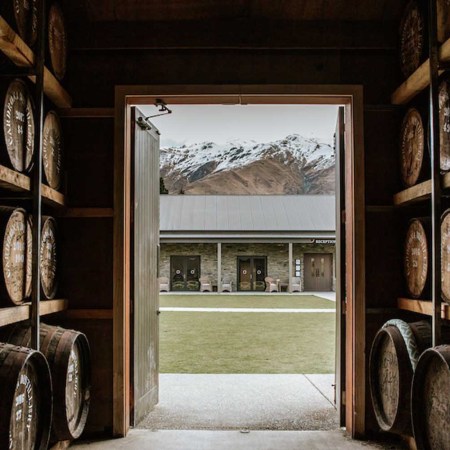
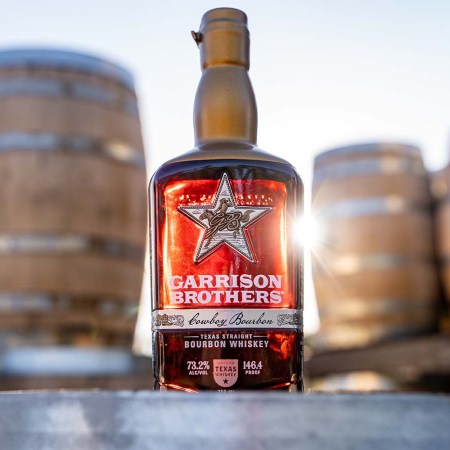
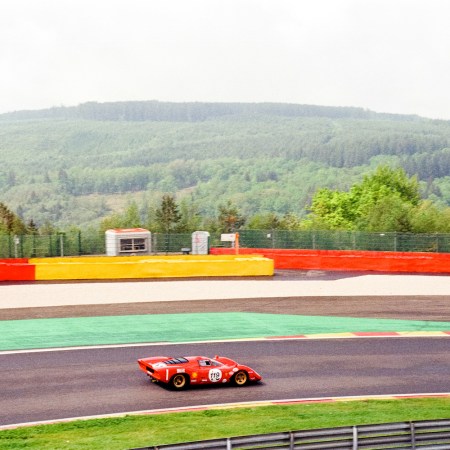

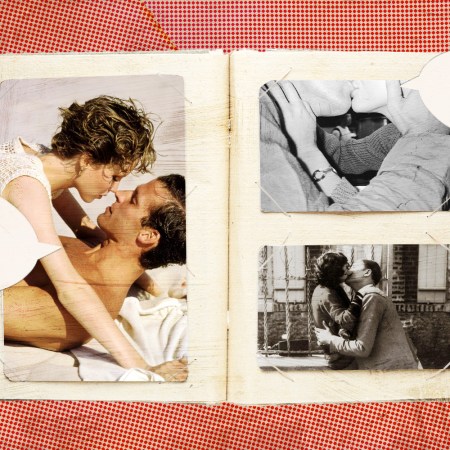
![Noah Wyle [third from left] with the season 2 cast of "The Pitt"](https://www.insidehook.com/wp-content/uploads/2026/01/the-pitt-season-2-schedule.jpg?resize=450%2C450)
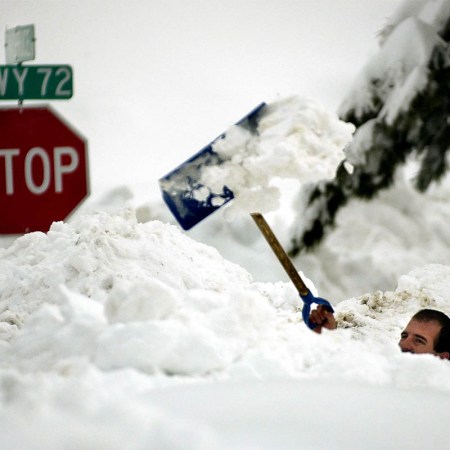
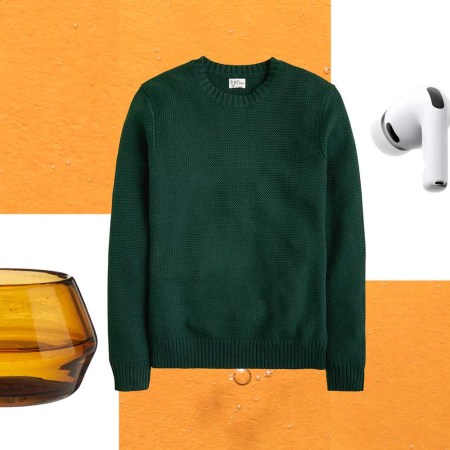
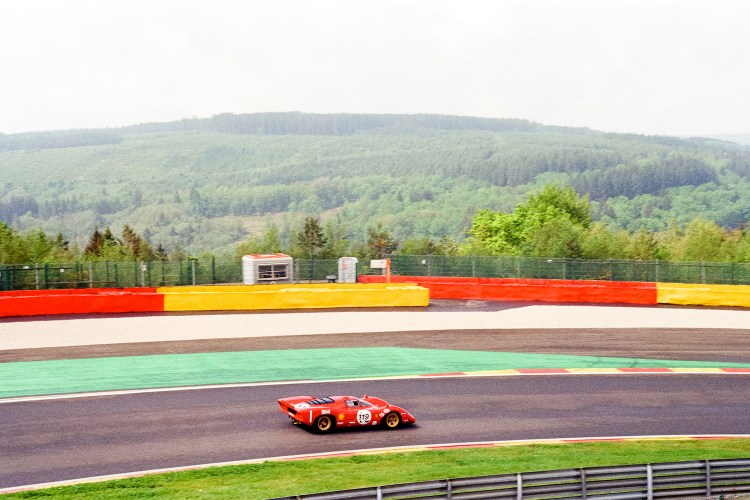

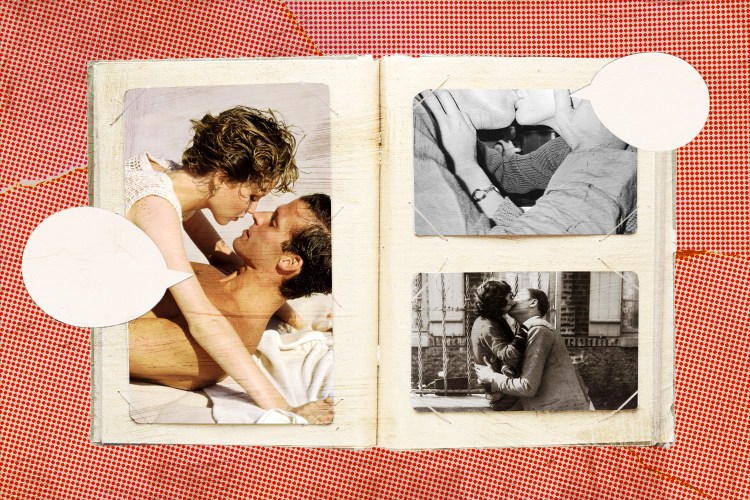
![Noah Wyle [third from left] with the season 2 cast of "The Pitt"](https://www.insidehook.com/wp-content/uploads/2026/01/the-pitt-season-2-schedule.jpg?resize=750%2C500)
